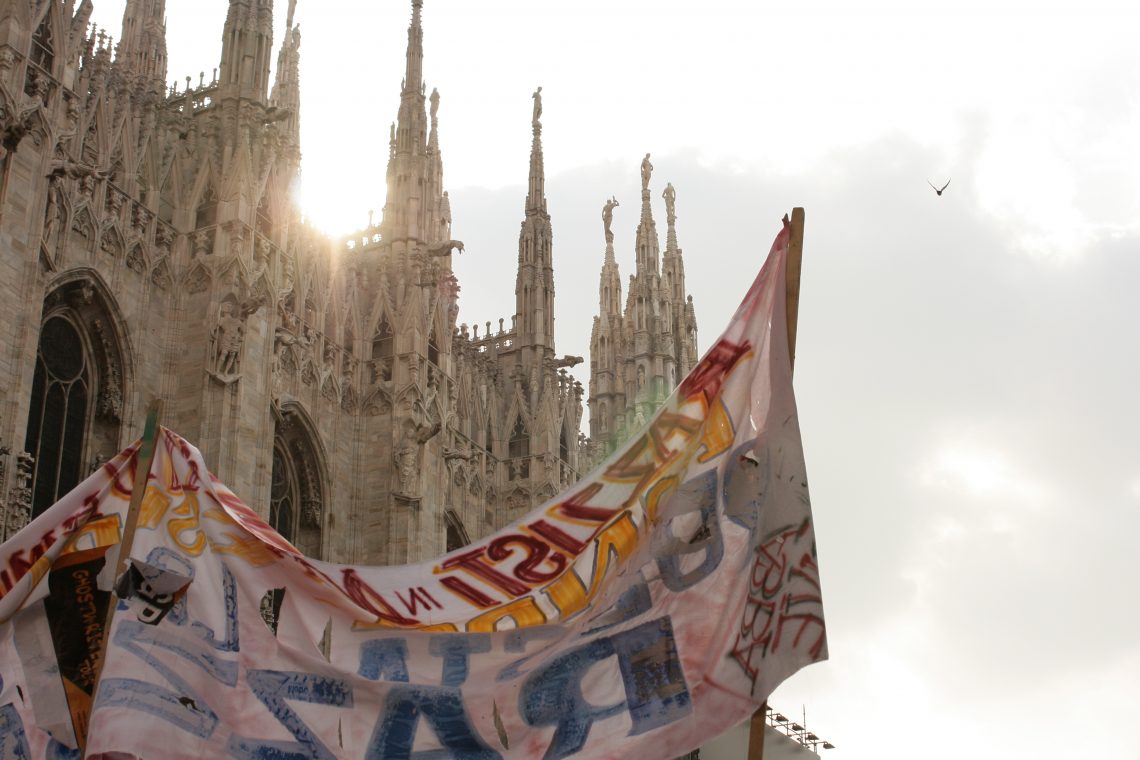
https://www.flickr.com/photos/8617547@N07/2876042804
May 2011. We are in the middle of a campaign for the local elections. Among the cities where we vote, there is Milan. The two mayoral candidates who monopolize the attention are the outgoing Mayor, Letizia Moratti (supported by the centre-right coalition), and Giuliano Pisapia (supported by the centre-left coalition). On 21 May 2001, Umberto Bossi, the former secretary of the Northern League, declares: “I will work against Pisapia because he risks turning Milan into a Zingaropoli (such as gypsy metropolis)”. Similar tones also characterize a statement made to the newspaper la Repubblica. On the same day, the newspaper also published a photo of some electoral posters spread in the streets of Milan by the Lega Nord. The text has the same tenor as the declarations. Two days later, Prime Minister Berlusconi, in his “Appeal for Milan”, declares: “On the eve of Expo 2015, Milan cannot become an Islamic city, a Zingaropoli (gypsy city) full of Roma camps and besieged by foreigners to whom the left also gives the right to vote”. On 23 May, Naga, the historic antiracist association in Milan, decides to file an anti-discrimination appeal. One year later, the first civil section of the Court of Milan partially accepts the appeal, ascertaining and declaring the discriminatory nature of the expression “MILAN ZINGAROPOLI”. For the first time in Italy, a court order condemning political parties for discrimination is filed. For more details on the contents of the sentence, download the contribution below.


